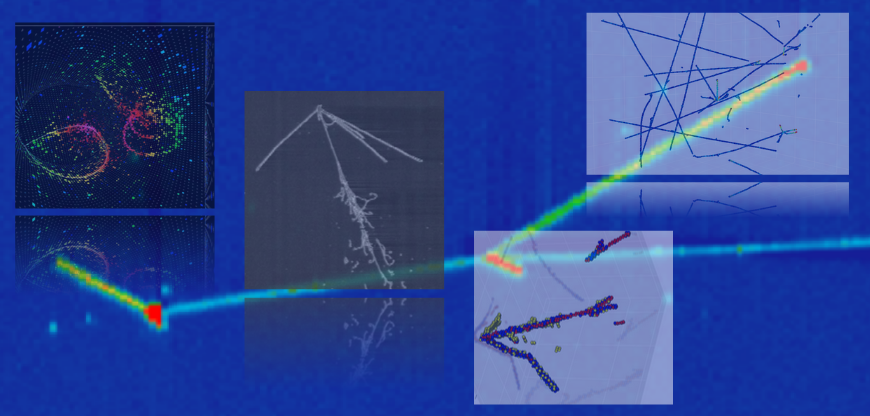Speaker
Description
The Jiangmen Underground Neutrino Observatory (JUNO) is a neutrino experiment under construction with a broad physics program. The main goals of JUNO are the determination of the neutrino mass ordering and the high-precision measurement of neutrino oscillation properties with anti-neutrinos produced in commercial nuclear reactors. JUNO's central detector is an acrylic sphere 35.4 meters in diameter filled with 20 kt of liquid scintillator. It is equipped with photomultiplier tubes (PMTs) of two types: 17 612 20-inch PMTs and 25 600 3-inch PMTs. The central detector is designed to provide an energy resolution of 3% at 1 MeV.
JUNO detects electron antineutrinos via inverse beta decay (IBD). IBD reaction provides a pair of correlated events, thus a strong experimental signature to distinguish the signal from backgrounds. However, given the low cross-section of antineutrino interactions, the development of a powerful event selection algorithm that effectively discriminates between signal and background events is essential to most of JUNO’s physics goals. This talk presents a fully connected neural network as a powerful signal-background discriminator.
We also present the first interpretable analysis of the neural network approach for event selection in reactor neutrino experiments. This analysis provides insights into the decision-making process of the model and offers valuable information for improving and updating traditional event selection approaches.
| Type of contribution | Talk: 15 minutes. |
|---|

